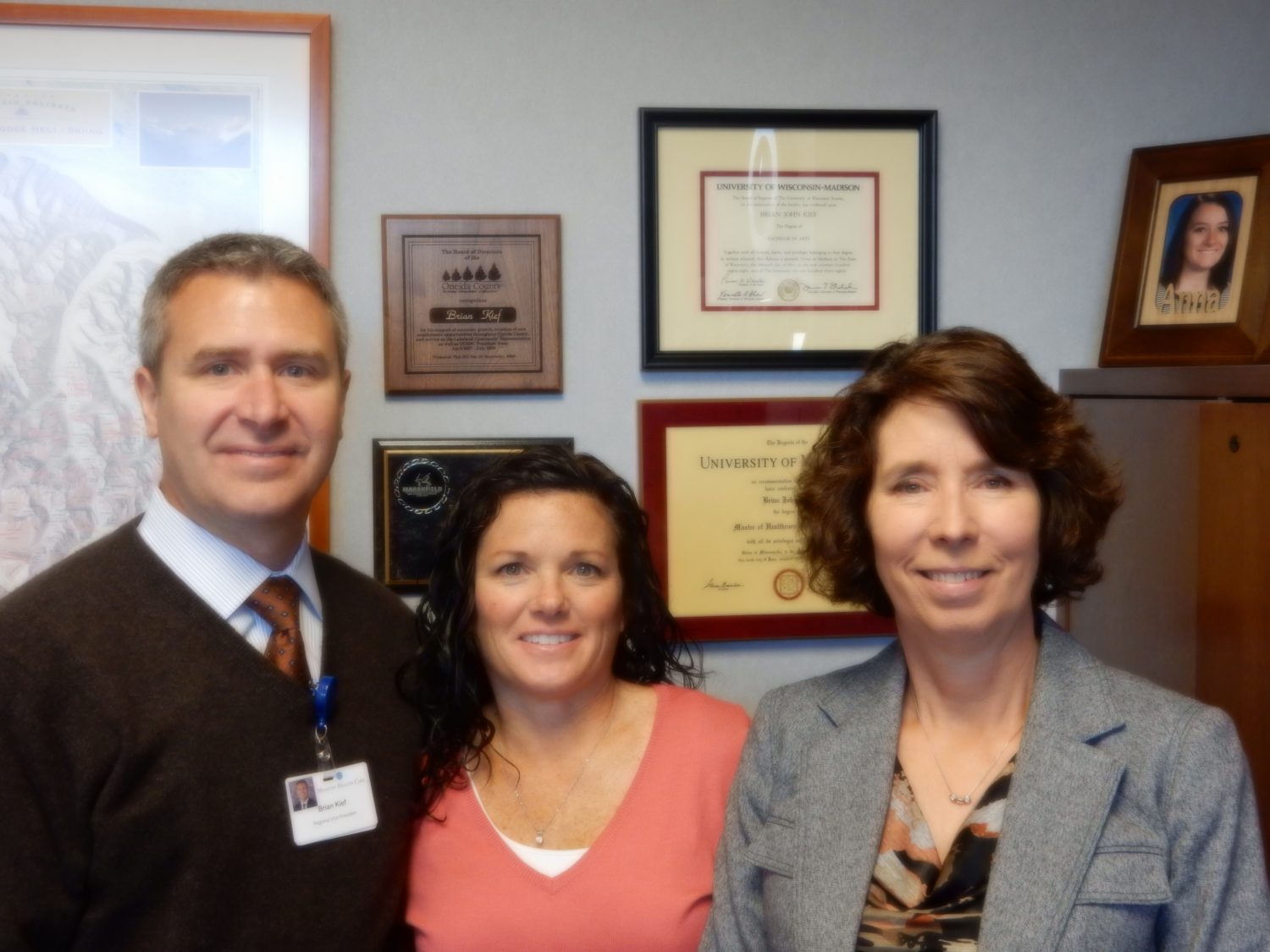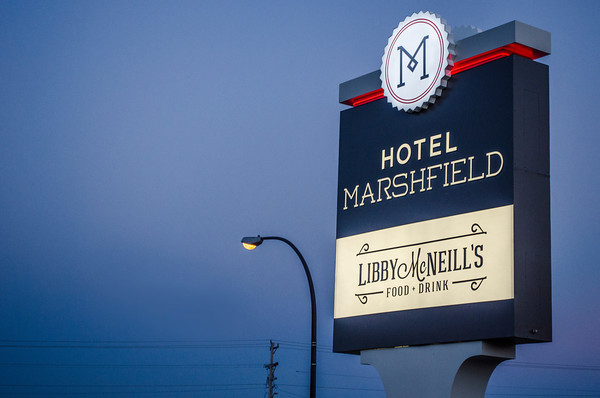A helping hand

The work of Marshfield Area United Way
By Adam Hocking
Editor
MARSHFIELD —Marshfield’s chapter of United Way was founded in 1946 and began as a community chest, raising over $15,000 in that first year. Since that time Marshfield Area United Way has evolved into an organization that supports the activities of numerous local groups. This year Marshfield Area United Way will provide funding and support to 29 local organizations.
Among the organizations that will receive United Way support this year are Big Brothers Big Sisters, Boy and Girl Scouts, Youth Net, Home Delivered Meals, the Frederic Ozanam Transitional Shelter, and many more.
Executive Director of the Marshfield Area United Way, Paula Jero, said that volunteers are the key to the success of United Way. Currently, Marshfield Area United Way has about 400 volunteers that work with the 29 organizations it supports.
“We have a very active community. We (United Way) have two and a half staff. So to do what we do, we rely heavily, heavily, heavily on volunteers,” Jero said.
Jero added that the funding for United Way comes almost entirely from community donations. She took the position of executive director in 2008, coinciding with the economic downturn.
“The economy and I came at the same time. I’ve had probably the most challenging years of United Way,” Jero said. “Before that making (our funding) goal was never, ever a question.”
One of the growing concerns Jero has seen in her time with United Way is the increase in childhood hunger in Marshfield. According to a 2012 survey, 20 percent of eighth, 10th, and 12th grade students in Marshfield reported going to bed hungry at least once within a period of 30 days.
In response, Marshfield Area United Way implemented the Nutrition on Weekends (NOW) program in 2013. NOW provides healthy and easy to prepare food for children on weekends, when they do not have access to school lunches. NOW currently serves 105 students in the Marshfield School District, 37 students in Granton, and 47 in Spencer.
Marshfield Area United Way also recently completed its Supplemental Nutrition Assistance Program (SNAP) challenge where it asked individuals in the community to live on the same meal budget as someone receiving food stamps, about $4 per day. The SNAP challenge raised awareness for the struggle that millions of Americans endure in trying to feed themselves and their families on a limited budget.
Jero said that she derives energy and passion for her work from the people United Way assists every day.
“Every day we’re looking in the eyes of people that are looking for help,” Jero said. “The hardest thing is to not have an answer for somebody, especially when it’s 20 below out in the middle of winter. You don’t want to have to send somebody back out there and say, ‘It’s not my problem.’ To be able to say to somebody, ‘Hey, let me make a couple phone calls,’ and be able to connect that person to a bed and a warm spot, that’s the best feeling in the world.”
Brian Kief, who is president of St. Joseph’s Hospital, and his wife Beth Kief are the drive chairs this year for the Marshfield Area United Way fundraising campaign. Different chairs are selected each year.
Brian said that he and Beth both felt this was a good opportunity to give back to Marshfield, which has given so much to their family.
“It’s just that sense of community participation that I know we both have, that sense that you have to give back to the community that’s given you everything that you have. If you have the capacity to do that, then you ought to,” Brian said.
“It feels good to do it, to give back and help somebody,” Beth added.
Brian said that Americans have a cultural belief that individuals should be able to elevate themselves to success, regardless of circumstances. While this is generally a positive message, Brian believes it can create a mindset that those in need of help simply have not worked hard enough.
“That’s a shame because that’s not the reality for most people in these situations. It’s not about specific choices they did or didn’t make to help themselves. A lot of it is one or two or three bad breaks, some tragedy that happened that suddenly now puts this person in a situation where if we can help them, if we can give them that leg up, they’re right back on the path that they were on,” Brian said.
He added that one of the reasons he has supported United Way for 25 years is the meticulous way in which it allocates funding. Organizations must present to United Way volunteers and talk about the merits of their program and why they are a good investment for donors.
“There’s a lot of options for your charitable dollar. You know that charitable dollar that you give is going to work for you (through United Way). It’s pinpointed at the most effective place,” Brian said.
“It’s very structured,” Jero said of United Way’s process for selecting programs to fund. “People don’t understand that sometimes. They think it’s really just that handout. It’s not.”
Virtually all of the money donated to Marshfield Area United Way stays in the community and supports organizations in Marshfield. To donate or to get involved with Marshfield Area United Way, visit http://www.marshfieldareaunitedway.org/.
Leave a reply
You must be logged in to post a comment.






